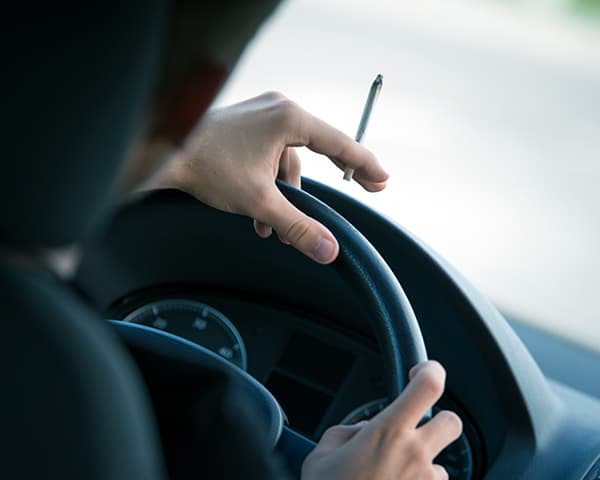
In 2012, Washington was one of only a handful of states that legalized the use of cannabis for recreational purposes. This had a wide range of potential implications, and at Adler Giersch we closely watched developments to see how this would impact treatment of chronic pain, access to care, and denials by insurers. We also monitored the effect of legally purchased cannabis and any relationship with motor vehicle collisions in Washington State. Unfortunately, recent data shows a corresponding increase in the use of cannabis and collisions, especially fatalities, since the statute went into effect.
In Washington State, it is a violation of the law to drive a motor vehicle when under the influence of cannabis.[1] This means that it is illegal to drive with more than 5 nanograms per milliliter (ng/ml) of THC, the psychoactive chemical found in cannabis, in the blood – similar to the .08 blood alcohol legal limit. Research says that it can take up to 3 hours or more for some people to drop below 5 ng/ml depending on multiple variables such as gender and body size. This is complicated by the fact that edible cannabis products can remain in the system much longer.[2] Some studies have found that blood THC concentrations exceeding 5 ng/ml can last as long as 24 hours after cannabis is consumed in frequent users.
A recent study of Washington State traffic collisions by the American Automobile Association looked at the 10 year period from 2008 to 2017 to determine if there was a link between the legalization of cannabis and the increase in traffic collisions and traffic-related deaths.[3]
Before the recreational cannabis law was passed in 2012, an average of 8.8% of all drivers in fatal crashes tested positive for THC. After the law passed, this average more than doubled, to an average of 18.0% in the years from 2012-2017. 2017 had the highest percentage of traffic fatalities involving THC-positive drivers, with 21.4%.[4]
Not only did the percentage of THC-related fatalities increase, the number of THC-impaired drivers did as well. In the five years prior to the passage of Washington’s recreational use law, an average of 56 drivers involved in fatal crashes tested positive for THC. From 2012-2017, this number more than doubled, to 130 drivers who were THC impaired.[5]
This increase is not just isolated to Washington State. A 2017 study by the Highway Loss Data Institute found that the legalization of recreational cannabis in Colorado, Oregon and Washington was associated with a higher motor vehicle collision frequency (9.7% increase in Washington, 12.5% increase in Colorado and 4.5% in Oregon) compared to states that had no legalization.[6]
While the AAA study acknowledged that there is too much data variability to conclude confidently whether the prevalence of THC-positive drivers is continuing to increase, the data did show that the highest number of fatal crashes involving THC-positive drivers was in 2017, the last year of the study. This seems to indicate an alarming trend.
With the continuing increase in the number of motor vehicle collisions caused by impaired drivers, we are well-versed in dealing with these types of cases. As a former advisory board member for MADD-Washington, I know that the effects of a DUI-related injury or fatality devastate not just the family involved, but the local community as well. Handling a DUI case takes more than just experience in civil law. It also requires the know-how to deal with the police investigation, the Prosecutor’s office and the insurance companies. If one of your patients is unfortunate enough to be injured due to an impaired driver, we are always here to assist.
[1] RCW 46.61.745.
[2] https://lcb.wa.gov/mj-education/safety
[3] Tefft, B. C. & Arnold, L. S. (2020). Cannabis Use Among Drivers in Fatal Crashes in Washington State Before and After Legalization (Research Brief). Washington, D.C.: AAA Foundation for Traffic Safety.
[4] Ibid.
[5] Ibid.
[6] Highway Loss Data Institute, Vol. 34, No. 14: April 2017.
